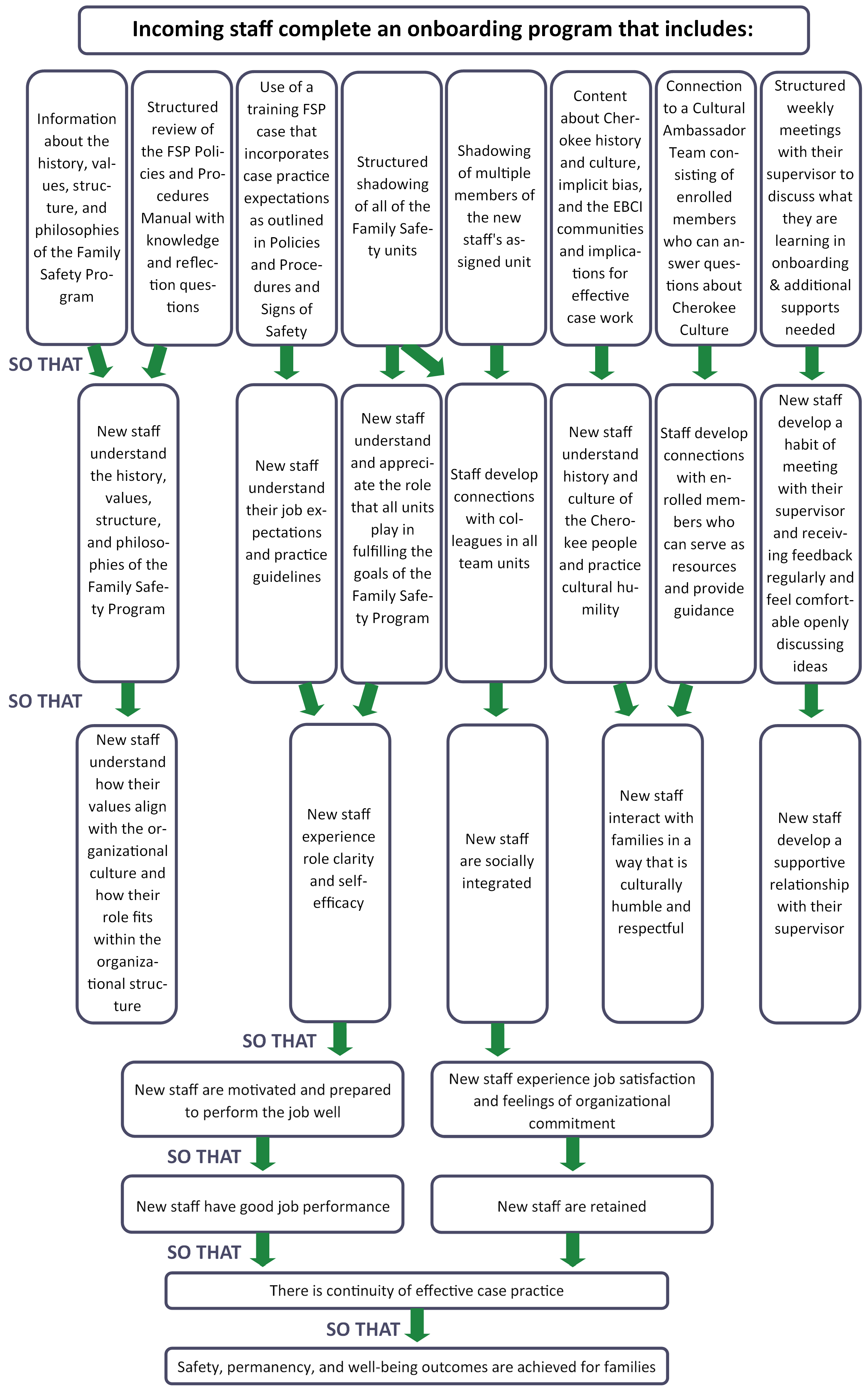Onboarding Program
During the needs assessment process facilitated by the Quality Improvement Center for Workforce Development (QIC-WD) three areas of need were discussed for possible intervention at Eastern Band of Cherokee Indians (EBCI) Family Safety Program (FSP): 1) team cohesion across the various agency units, 2) unhealthy levels of employee stress and work overload, and 3) inconsistent onboarding practices. For each area, a problem statement was developed, and in-depth root cause analysis and theory of change discussions were conducted. Ultimately, one theory of change was developed to step through the “if, then” logic for implementation of an onboarding program to improve worker retention and performance.
The theory of change development process was informed by various data examined throughout the needs assessment, input from the implementation team, and relevant onboarding research and best practice. The theory of change for EBCI FSP’s intervention demonstrated how the collective components of the onboarding program were designed to influence the new hire experience by enhancing:
- understanding of the agency, their assigned role, and Cherokee history and culture,
- social connections with colleagues across the agency, and
- a supportive relationship with their supervisor.
These conditions were designed to help new staff:
- understand how their role fits within the larger agency structure,
- feel confident performing their job well,
- become socially integrated into the agency, and
- ultimately experience job satisfaction and organizational commitment.
In turn, the QIC-WD and FSP hypothesized that new staff would be retained, resulting in higher morale for all agency staff, continuity of effective case practice, and improved outcomes for children and families.
The following image depicts the theory of change beginning with a problem statement followed by a series of steps that lay out the logic on how that problem will be addressed.
